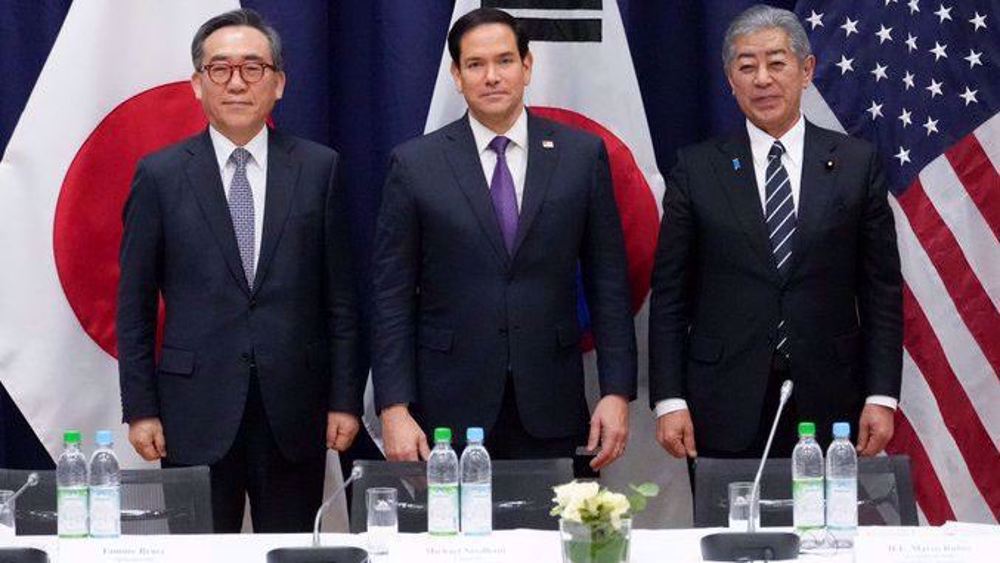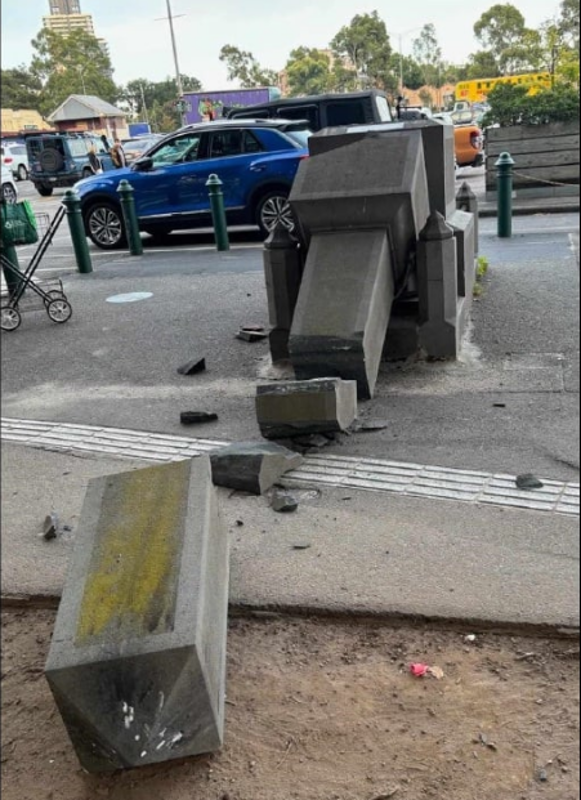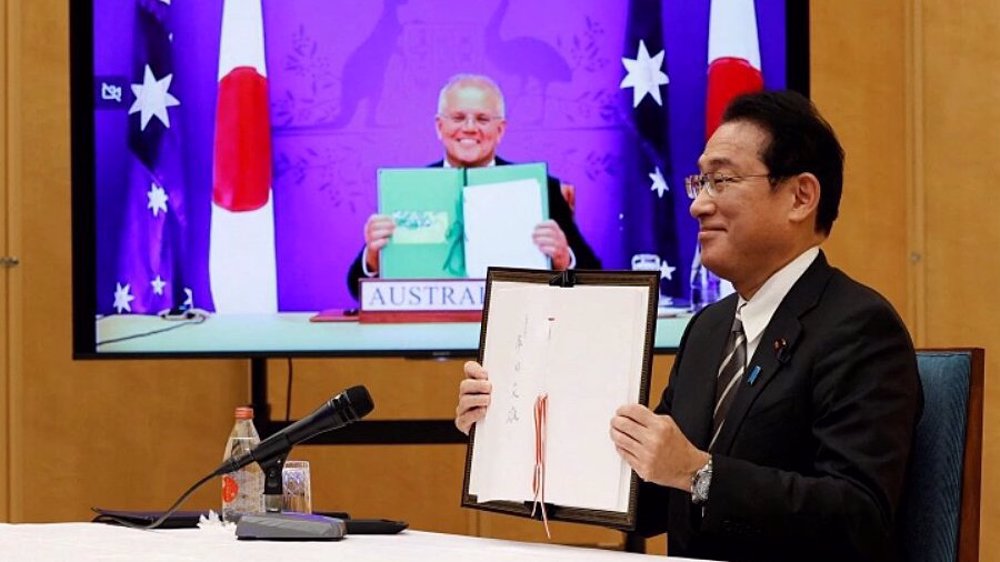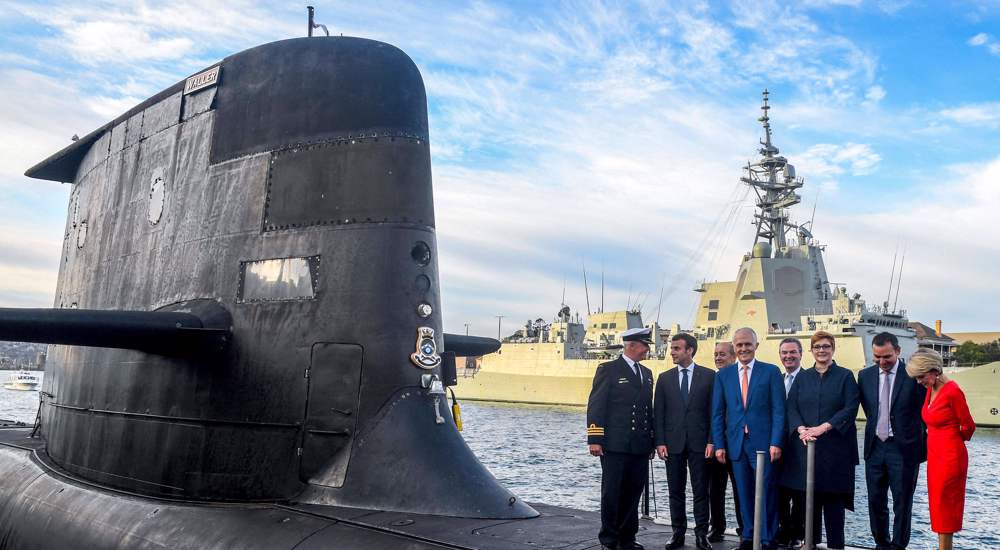Japan, Australia ink defense, security pact
Japan and Australia have signed a “landmark” security pact on defense and security cooperation to purportedly boost security and stability in the Indo-Pacific, against the backdrop of China’s growing military and economic might.
During a a virtual summit on Thursday, Japanese Prime Minister Fumio Kishida and his Australian counterpart, Scott Morrison, signed a treaty called the Reciprocal Access Agreement (RAA), which according to the Australian leader “will underpin greater and more complex practical engagement between the Australian Defense Force and the Japanese Self-Defense Forces.”
Morrison described Japan as Australia’s “partner in Asia as demonstrated by our special strategic partnership,” which is “Australia's only such partnership, an equal partnership of shared trust between” the two countries. He said the RAA “opens a new chapter for advanced defense and security cooperation.”
According to Morrison, the RAA, which had been in the works for several years, will allow the militaries of the two countries to work seamlessly with each other on purported defense and humanitarian operations.
The pact is the second such treaty of Japan. Back in 1951, Japan and the United States signed their Mutual Security Treaty, and in 1960, they inked its revised version, granting the US the right to build bases on the Japanese archipelago in exchange for a commitment to defend Japan in case of an attack.
Japan’s Kyodo news agency reported that the RAA would facilitate joint military drills and the faster deployment of Japanese and Australian military forces and ease restrictions on the transportation of weapons and supplies for joint training and disaster relief operations.
The Japanese premier praised the pact as “a landmark instrument which will elevate security cooperation between the nations to new heights.”
The RAA is the latest indication that Japan is breaking away from its post-war constitutional constraints on the use of military force.
Back in September, Australia signed the so-called AUKUS trilateral security pact with the US and the United Kingdom according to which Washington and London pledged to help Canberra acquire nuclear-powered submarines.
The deal angered China at the time, prompting it to say that it “seriously undermined regional peace and stability, intensified the arms race, and undermined international non-proliferation efforts.”
Commenting on the RAA on Wednesday, Chinese Foreign Ministry spokesman Wang Wenbin said at a regular briefing that “the Pacific Ocean is vast enough for the common development of countries in the region.”
“State-to-state exchanges and cooperation should be conducive to enhancing mutual understanding and trust among countries in the region and safeguarding regional peace and stability, rather than targeting or undermining the interests of any third party,” he said, expressing hope that “the Pacific will be an ocean of peace, not a place to make waves.”

US, Japan, S Korea renew calls for ‘complete denuclearisation’ of North Korea

Indigenous rights activists rally on Australia Day to protest British colonization legacy

Colonialist’s monument toppled in Melbourne ahead of Australia Day
Iranian flotilla makes port call in India with 'friendship message'
How UK counter-terror police colluded with Zionists to detain me after Beirut trip
Biden, Blinken, Austin referred to ICC over Gaza war crimes
EU will 'do the same' if US implements tariff hikes: France
VIDEO | Press TV's news headlines
British celebrities condemn BBC removal of Gaza documentary
Iran Army acquires tactical vehicles, audio surveillance systems
VIDEO | UK police detain anti-Zionist scholar upon return from Lebanon








 This makes it easy to access the Press TV website
This makes it easy to access the Press TV website